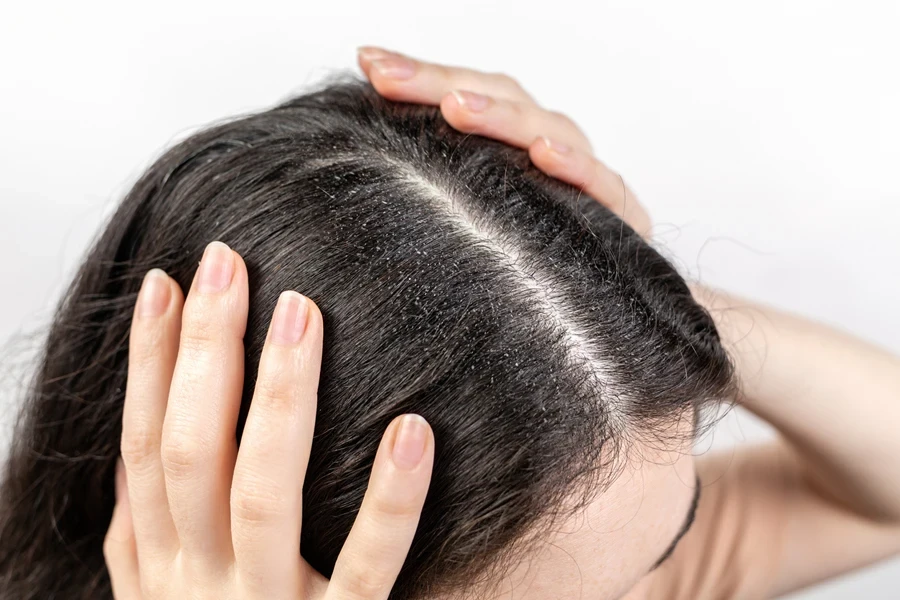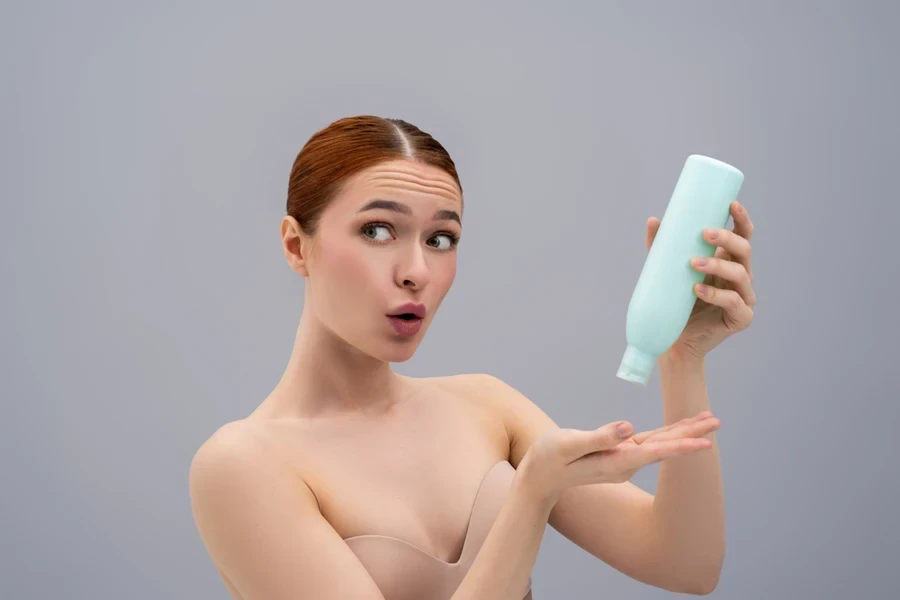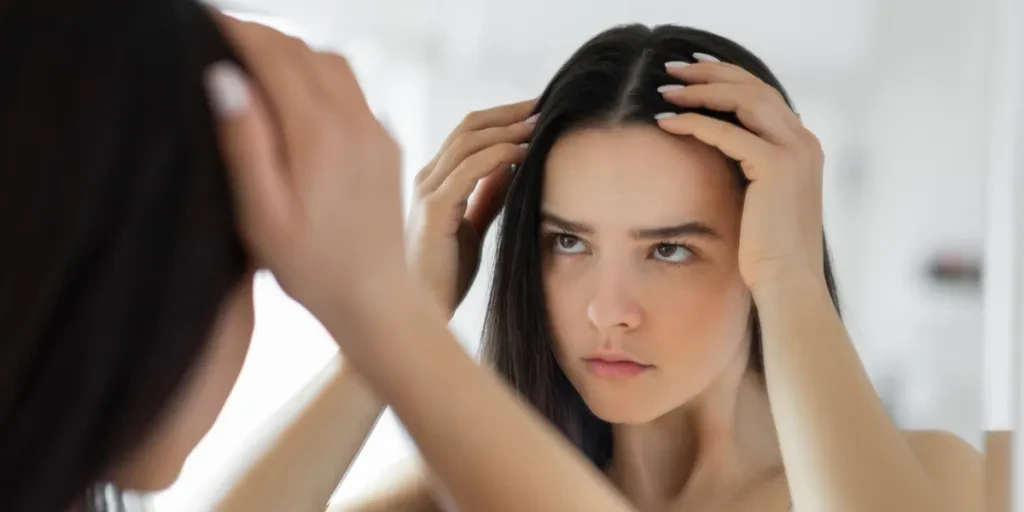Despite being a problem that many of us will face in our lifetimes, dandruff is rarely seen as a minor inconvenience. This confidence killer sends millions of shoppers searching for relief every year. And for better or for worse, this problem presents an opportunity for beauty retailers looking to offer consumers relief through the right anti-dandruff shampoo.
But here’s the catch: choosing the best anti-dandruff shampoo isn’t as straightforward as it seems. Which ingredients truly work? What packaging grabs attention? And how do retailers balance effectiveness with market trends? These answers are likely to inform which shampoos retailers stock as well as their bottom line.
In this article, we’ll cover the key factors that make anti-dandruff shampoo a retail powerhouse.
Table of Contents
A bit more context about dandruff
How does anti-dandruff shampoo help?
What businesses should consider before choosing anti-dandruff shampoos
1. The consumer’s scalp type
2. Active ingredients
3. Purity and quality
4. Fragrance and texture
Other products to sell with anti-dandruff shampoos
Final words
A bit more context about dandruff

Dandruff is one of the most common scalp conditions, characterized by mild to severe flaking and itching as the result of the scalp’s natural processes going awry. While it’s not directly harmful to a person’s health, it’s often frustrating and can impact confidence.
The main culprit behind dandruff is a yeast-like fungus called Malassezia, which lives on the scalp of most adults. Under certain conditions – such as where there’s excess oil production, sensitivity to Malassezia, or imbalances in the skin barrier – this fungus can trigger irritation and excessive shedding of skin cells. Other contributing factors include dry skin, product buildup, stress, and environmental changes.
How does anti-dandruff shampoo help with this issue?

Most people think of shampoos as simple cleansers for hair, but anti-dandruff shampoos do much more. These products are specifically designed to address the underlying causes of dandruff, a common and often stubborn scalp condition. They don’t just wash away flakes; they actively work to prevent them from coming back.
What sets them apart is their use of targeted ingredients. Zinc pyrithione, for instance, takes aim at Malassezia, while salicylic acid helps remove buildup from dead skin. Many shampoos also include calming agents like tea tree oil or aloe vera to reduce redness and irritation. This combination makes anti-dandruff shampoos a go-to choice for anyone seeking relief from itchiness and flakes.
What businesses should consider before choosing anti-dandruff shampoos
1. The consumer’s scalp type
Not all dandruff shampoos work the same way for everyone, and that’s because not all scalps are the same. Some people deal with excess oil, which can make their dandruff worse. Shampoos that balance oil production and target fungus-causing dandruff – like those containing zinc pyrithione or selenium sulfide – are a smart choice for these customers.
Others, however, have dry or sensitive scalps. These individuals most likely require gentler options that won’t strip away moisture. Look for shampoos with soothing ingredients, such as aloe vera or oatmeal, which hydrate and soothe the skin while addressing flakes.
Offering various products for different scalp needs ensures every customer feels considered. By understanding these differences, retailers can stock products that genuinely solve problems for their shoppers.
2. Active ingredients

When customers shop for anti-dandruff shampoos, they’re looking for one thing – results. What makes these products effective are their active ingredients, which directly target the causes of dandruff. For retailers, understanding these components can help businesses choose products that truly work.
| Active ingredient | Description |
| Zinc pyrithione | A workhorse ingredient, zinc pyrithione tackles the fungus that contributes to dandruff and helps reduce inflammation. It’s a go-to for mild to moderate cases. |
| Ketoconazole | This antifungal powerhouse is often found in shampoos designed for stubborn dandruff. It fights irritation while targeting the root cause. |
| Selenium sulfide | Selenium sulfide slows down skin cell turnover and reduces flaking. It works well for severe cases but may require occasional use due to its strength. |
| Salicylic acid | An exfoliant that removes flakes and buildup, salicylic acid pairs well with moisturizing agents to soothe the scalp |
| Coal tar | Often used for more extreme scalp conditions, it helps control cell production, though its scent and staining potential make it less mainstream |
| Tea tree oil | This is a natural option for those seeking gentler products. Tea tree oil has antifungal and soothing properties that appeal to customers looking for plant-based solutions. |
Consider offering shampoos with a mix of these ingredients, as these will cater to a wider range of needs, including gentle care or heavy-duty relief. More importantly, it will help to ensure that you can provide customers with solutions that keep them returning for other products.
3. Purity and quality
Nowadays, shoppers pay more attention to the ingredients in their hair products, and anti-dandruff shampoos are no different. They want products that are pure and high-quality, not just trendy. So, when stocking these shampoos, you demonstrate transparency to build trust and a good reputation.
One of the first things to consider here is purity, which comes down to the ingredients. Since most people want gentle options that won’t harm their scalp, they’ll likely prefer shampoos without sulfates, parabens, and artificial fragrances. These additives are notorious for irritating sensitive skin or making the scalp dryer than normal, both of which can make dandruff worse.
Purity works best when businesses can support it with quality, which relies on how well the product works and its reliability. Here, shampoos from trusted brands or supported by dermatologists often stand out. So, consider stocking products that are “dermatologist-tested” or “clinically proven” to boost confidence in purchases.
4. Fragrance and texture

Finally, don’t overlook the smell and feel of anti-dandruff shampoos, which can be just as important as the other factors. Scent is often the first factor to make an impression on users, and has the potential to turn them away. For instance, many consumers dislike overly medicated scents, especially those common to more traditional dandruff treatments.
Beauty brands may want to therefore consider more modern formulas with subtle, fresh, or luxurious fragrances, making them more appealing. For a safe range of scents to offer, consider light florals or unscented options for sensitive buyers.
As for texture, anti-dandruff shampoos with creamy textures tend to be more pleasing to use, lathering well and offering a better washing experience.
Other products to sell with anti-dandruff shampoos

While anti-dandruff shampoos can do much alone, other haircare products pair well with them. As such, beauty businesses may want to consider cross-selling conditioners, scalp serums, and hair masks.
Final words
Stocking anti-dandruff shampoos is about more than just having the right products. Businesses should show their customers that they understand their needs. Whether dealing with oily scalps, dry flakes, or sensitive skin, consumers will feel more confident and loyalty will build if they receive the help that they need.
Remember to focus on products that work, feel good, and align with customer expectations. The details, especially ingredients, texture, scent, and packaging, matter. So, take the time to choose thoughtfully.




